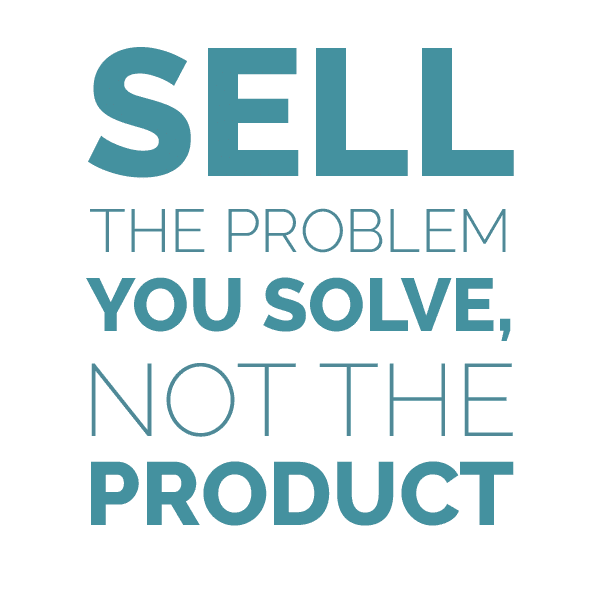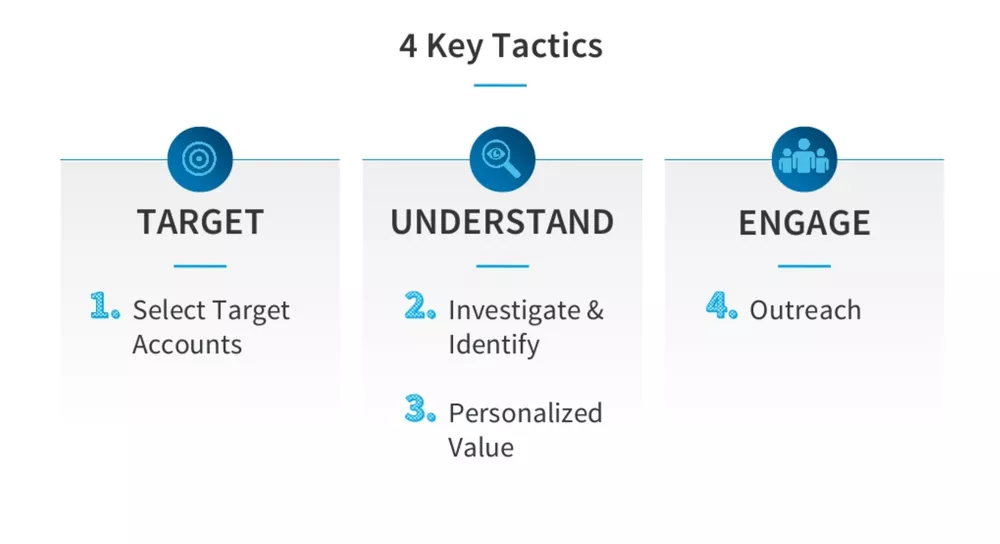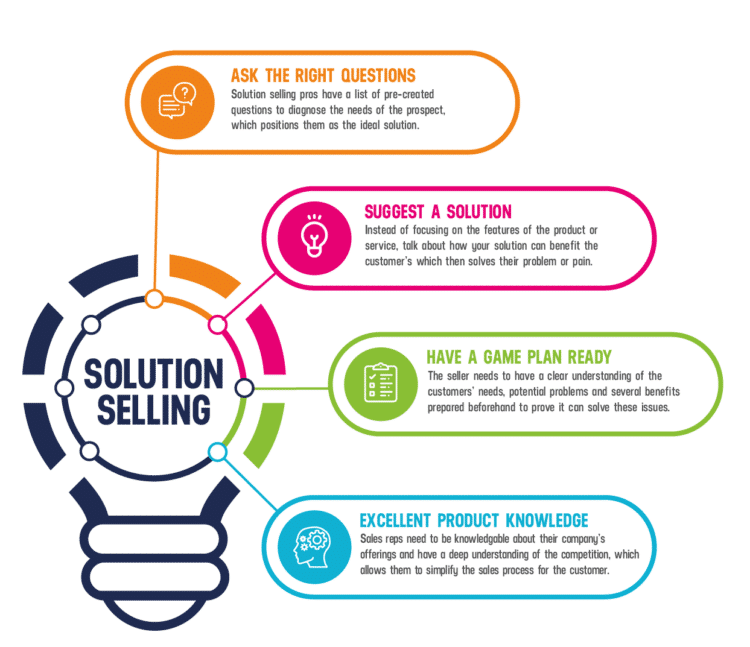Solution selling
Solution Selling is a sales methodology that identifies and solves the customer’s pain points by offering a tailored solution that meets their needs.
Unlike traditional selling techniques that focus on pushing products or services, solution selling is all about identifying the customer’s challenges, diagnosing the problem, and offering a solution that solves the issue.
In this blog post, we’ll explore the concept of solution selling, its benefits, and the critical elements of a successful solution selling approach.
What is solution selling?
Solution selling is a sales methodology focusing on understanding the customer’s needs and offering a solution addressing their specific challenges. The solution is tailored to the customer’s specific situation, and it can be a combination of products, services, and other resources that can help the customer achieve their goals.
The key to solution selling is identifying the customer’s pain points and offering a solution that addresses those pain points.
The solution-selling process starts with understanding the customer’s needs. The salesperson must ask the right questions to understand the customer’s challenges and goals. This requires active listening and understanding of the customer’s business and the industry they operate in.
Once the salesperson clearly understands the customer’s needs, they can diagnose the problem and offer a solution that meets those needs.


The benefits of solution selling:
Solution selling has many benefits for both the salesperson and the customer. For the salesperson, the benefits include:
- Increased sales: Solution selling focuses on meeting the customer’s needs, which results in higher customer satisfaction and increased sales.
- Improved customer relationships: Solution selling requires a deep understanding of the customer’s business and industry, which helps build strong customer relationships.
- Increased referrals: Satisfied customers are more likely to refer others to the salesperson, resulting in more business.
For the customer, the benefits of solution selling include:
- Tailored solutions: Solution selling offers solutions tailored to the customer’s specific needs, improving the chances of success.
- Increased value: Solution selling focuses on solving the customer’s pain points, which results in increased value for the customer.
- Improved efficiency: Solution selling helps customers save time and resources by addressing their pain points with a tailored solution.
The key elements of a successful solution-selling approach
To implement a successful solution-selling strategy, salespeople must follow several vital elements. These include:
- Understanding the customer’s needs: The first step in solution selling is understanding the customer’s needs. Salespeople must ask the right questions to identify the customer’s pain points and goals.
- Diagnosing the problem: Once the salesperson understands the customer’s needs, they must diagnose it. This requires a deep understanding of the customer’s business and industry.
- Offering a tailored solution: The salesperson must offer a solution tailored to the customer’s needs. This may include combining products, services, and other resources to help customers achieve their goals.
- Demonstrating value: The salesperson must demonstrate the solution’s value to the customer. This requires clearly understanding the customer’s business and how the solution will benefit them.
- Handling objections: The salesperson must be prepared to handle objections from the customer. This requires a deep understanding of the customer’s concerns and how to address them.
- Closing the deal: The salesperson must close the deal by securing the customer’s commitment to the solution. This may require negotiation and a clear understanding of the customer’s decision-making process.
- Follow-up: After the deal is closed, the salesperson must follow up with the customer to ensure they are satisfied with the solution. This helps build strong relationships with customers and can lead to future business.

